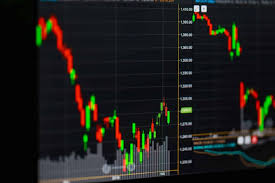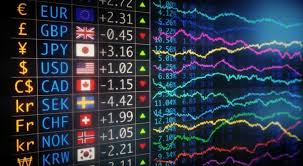Choosing the Right Forex Trading Online Broker A Comprehensive Guide

Choosing the Right Forex Trading Online Broker: A Comprehensive Guide
In today’s digital age, trading in the foreign exchange (Forex) market has become increasingly accessible thanks to online brokers. For those looking to engage in Forex trading, understanding the landscape of online brokers is essential. This article will explore what to look for in a Forex trading online broker and will provide some insights into the world of Forex trading. For further information on available brokers, you can also check out forex trading online broker India Brokers.
Understanding Forex Trading
Forex trading involves the exchange of currencies on a global marketplace. It’s one of the largest financial markets, with a daily trading volume exceeding $6 trillion. Traders speculate on the price movements of currency pairs, such as EUR/USD or GBP/JPY, aiming to profit from fluctuations in exchange rates.
Importance of Choosing the Right Broker
The choice of an online Forex broker can significantly influence trading performance. A reliable broker can provide the tools, resources, and support necessary for successful trading. Conversely, a poor choice may lead to losses, inadequate support, and an overall negative experience. Hence, selecting the right Forex broker should be a priority for any trader, whether a novice or an experienced investor.
Key Factors to Consider
1. Regulation and Licensing
Before opening an account with any Forex broker, it’s crucial to check if they are regulated by a reputable authority. Regulation ensures that brokers adhere to certain standards of conduct, which can protect traders from fraud. Regulatory bodies like the Financial Conduct Authority (FCA) in the UK and the Commodity Futures Trading Commission (CFTC) in the US oversee Forex brokers and provide a safety net for investors.
2. Trading Platforms
The trading platform is your primary control panel for managing trades. It’s essential to choose a broker that offers a reliable and user-friendly platform. Popular platforms like MetaTrader 4 (MT4) and MetaTrader 5 (MT5) are known for their robustness and functionality. Evaluate the platform’s features, such as charting tools, technical indicators, and order types to ensure they meet your trading style.
3. Leverage and Margins
Understanding leverage is crucial in Forex trading. Leverage allows traders to control a larger position with a smaller amount of capital. While it can amplify profits, it also increases potential losses. Different brokers offer varying leverage ratios, so it’s vital to find a broker that provides a balance that matches your risk tolerance.

4. Spreads and Commissions
Spreads are the difference between the buying and selling prices of a currency pair. A broker’s spread will affect your overall profitability, especially if you are an active trader. Some brokers offer zero commissions and rely on wider spreads, while others may charge a fixed commission. Evaluate which model works best for your trading strategy.
5. Customer Service
Excellent customer service can make a significant difference, particularly for new traders who may have numerous questions. Choose a broker with multiple support channels, such as live chat, email, and phone support. Ensure they are responsive and knowledgeable, as timely help can be vital during trading hours.
6. Deposit and Withdrawal Options
The ease of funding your trading account and withdrawing your profits is another crucial factor. Look for brokers that offer a variety of deposit and withdrawal methods, such as bank transfers, credit/debit cards, and e-wallets like PayPal or Skrill. Pay attention to potential fees and processing times associated with these transactions.
Types of Trading Accounts
Different brokers offer various types of trading accounts that cater to different traders. Here are the most common types:
- Standard Account: Best suited for beginner traders with moderate investment.
- Mini and Micro Accounts: These accounts allow traders to start with smaller investments and lower risk.
- ECN Accounts: Ideal for experienced traders who want direct market access and tighter spreads.
How to Open a Forex Trading Account
Opening a Forex trading account is straightforward, but it involves several steps:
- Choose a broker based on the factors mentioned above.
- Fill out an application form, providing necessary personal and financial information.
- Submit identification documents for verification.
- Fund your account using your preferred method.
- Download the trading platform and start trading.
Conclusion
In summary, choosing the right Forex trading online broker can significantly impact your trading success. By considering factors such as regulation, trading platforms, spreads, customer service, and account types, you can make an informed decision. Take your time to research and compare different brokers, as the right choice can enhance your trading experience and potentially lead to greater profits.
